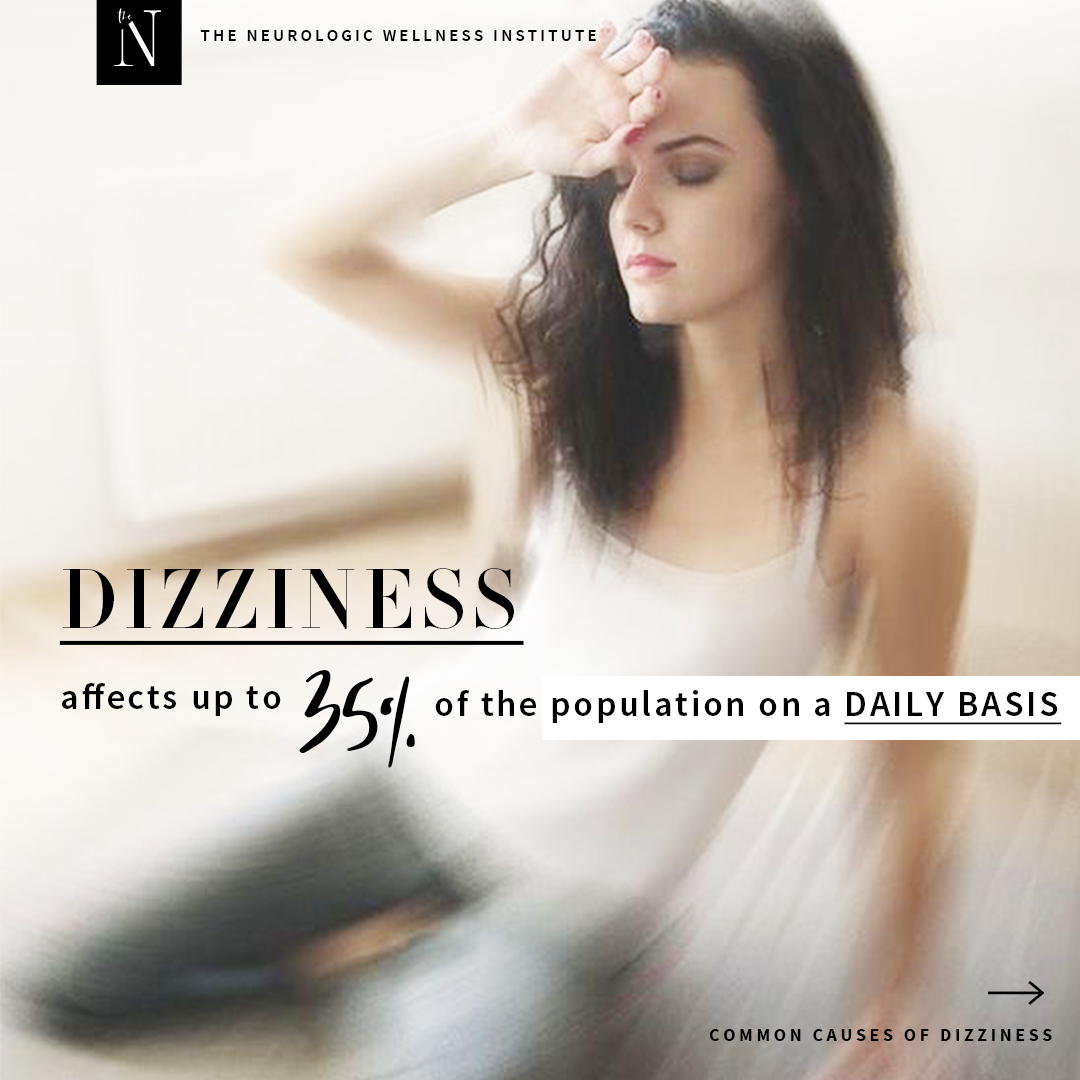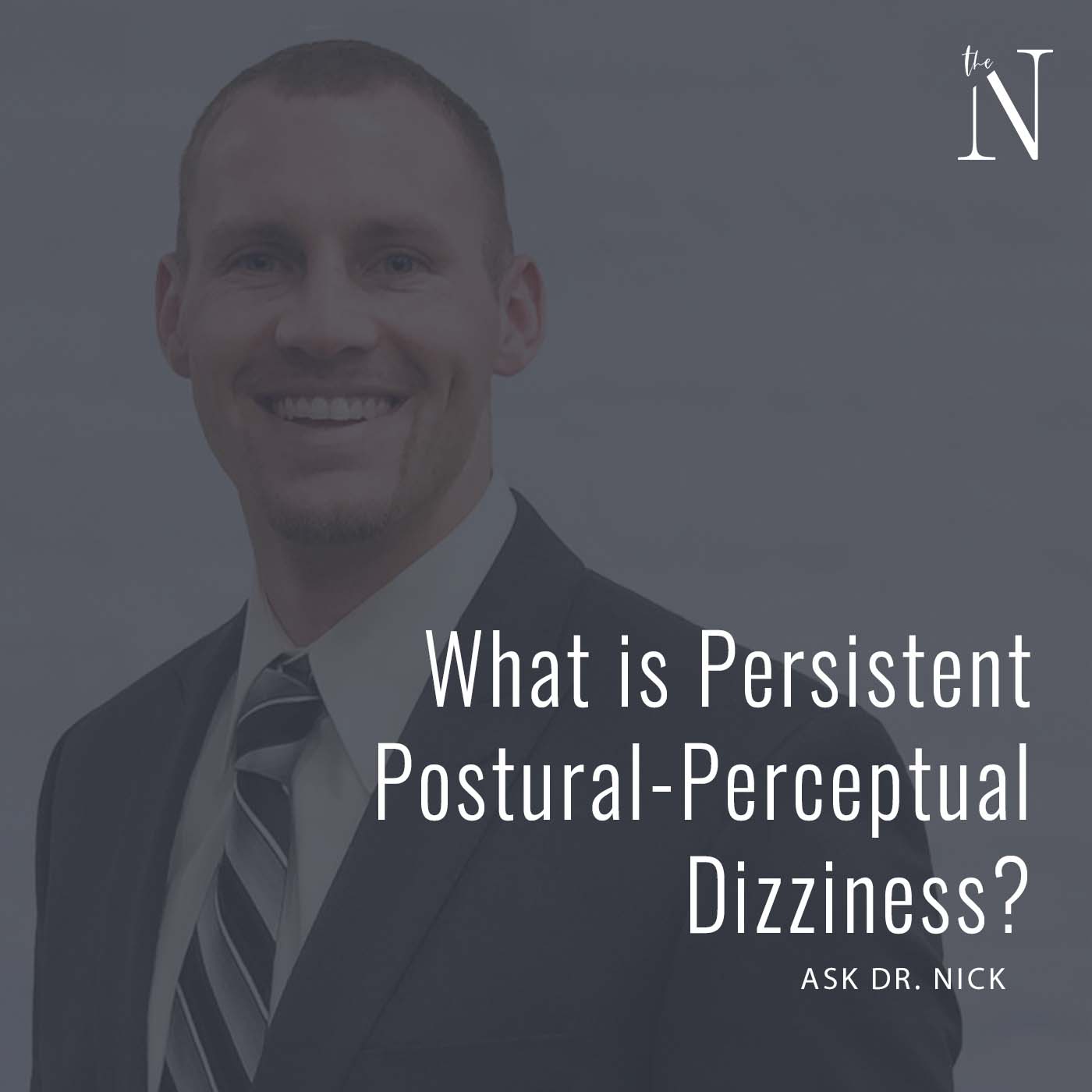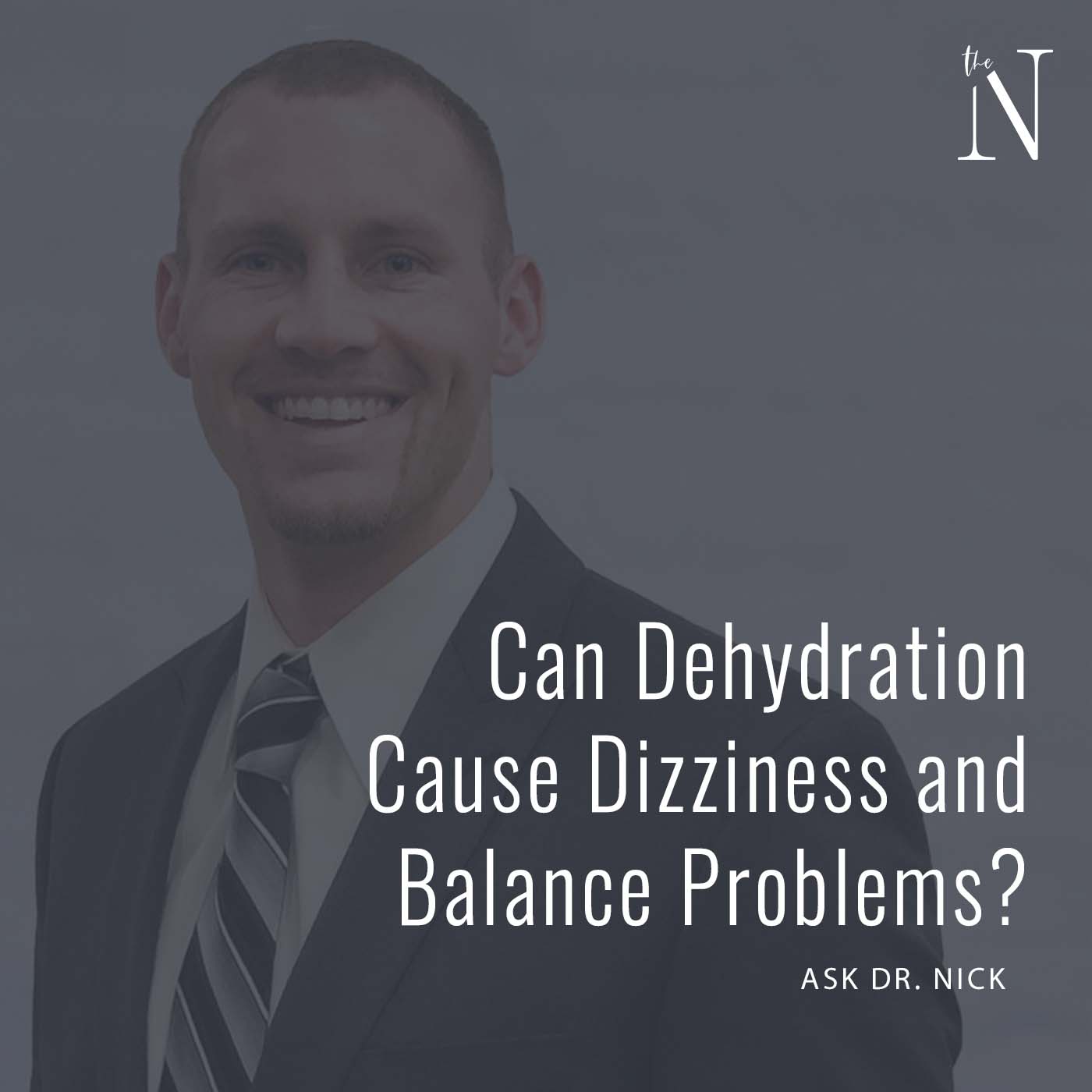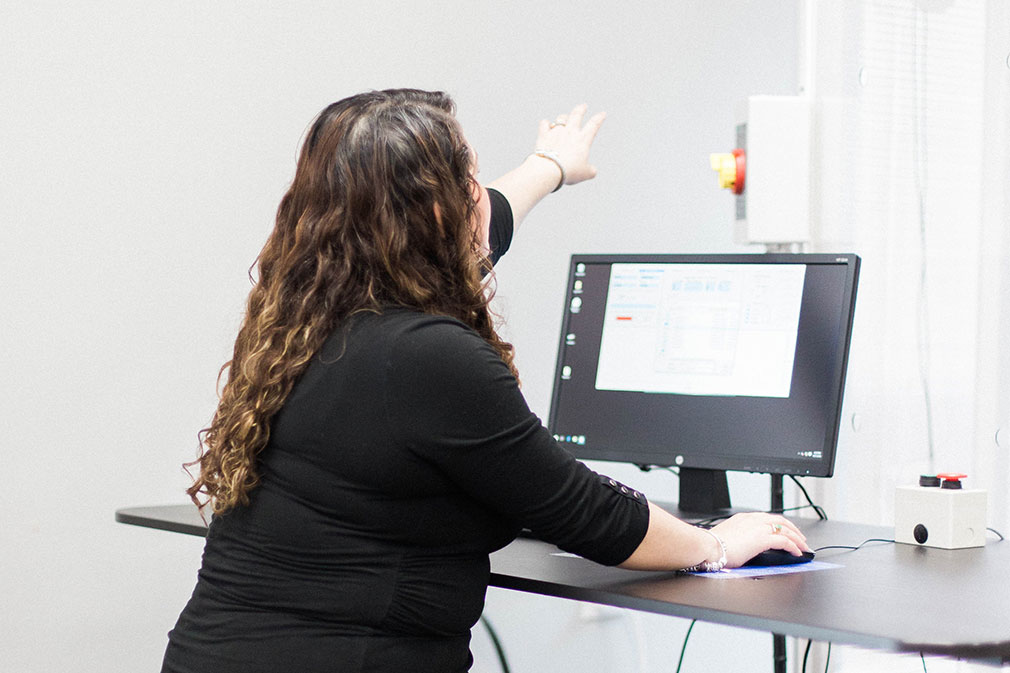Dizziness is among some of the most common complaints in medicine, affecting 15-35% of the general population. Research has shown that vertigo and dizziness is commonly misdiagnosed. There are a number of reasons why someone may experience dizziness, but here are six common reasons.

1. Benign Paroxysmal Positional Vertigo (BPPV)
Benign Paroxysmal Positional Vertigo (BPPV) is the most common cause of dizziness and typically results when the head is placed in a specific position. In the inner ear, there are “balance” receptors. Some of these receptors have heavy crystals made of what is called calcium carbonate on them, and some do not. For a number of reasons– such as head trauma, decreased blood flow to the inner ear, aging, and low vitamin D levels, these crystals may become dislodged and fall into places where they should not be. This may produce recurring symptoms of vertigo, lightheadedness, nausea, poor balance, trouble walking, a sense of floating and/or blurry vision for typically 30 seconds to 2 minutes after certain head positions. Situations which typically make the symptoms worse are lying down, turning over in bed, bending forward, or standing up from a lying position.
What Can Be Done?
Although symptoms of BPPV may be debilitating, curing BPPV may be rather simple and involves what is referred to as a repositioning maneuver. This repositioning maneuver is a non-invasive technique in which a trained professional will slowly move the head into certain positions to allow the calcium carbonate crystals to leave places they should not be and as a result eliminate the dizziness. If this is the cause of your dizziness, it is common for years of dizziness to be completely resolved within 15 minutes.
2. Orthostatic Intolerance
In contrast to BPPV where the dizziness is exacerbated by lying down, orthostatic intolerance causes dizziness, which typically consists of lightheadedness and unsteadiness, upon standing up,. Generally, one will feel better when lying in bed. The common cause of orthostatic intolerance is an abnormal drop in blood pressure and/or a spike in heart rate when standing. Orthostatic intolerance may be caused from a variety of factors such as head injury, previous infections, medications/supplements, and old age.
What Can Be Done?
It is important to have a comprehensive evaluation by a trained profession to assess the cause of each individual case. However, despite the cause, specific neurological rehabilitation may be extremely effective in reducing or eliminating the signs and symptoms or orthostatic intolerance.
3. Vestibular Neuritis
Vestibular neuritis is a condition in which inflammation of the vestibular nerve alters the transmission of information from inner ear sensory structures to the brain. This result in symptoms of vertigo, imbalance, nausea, vomiting, and altered vision that typically last for 2-3 days. After a few days, the symptoms of vestibular neuritis typically improve; however turning of the head in the direction of the damaged nerve may still cause dizziness.
What Can Be Done?
In the acute phase, medications and/or natural supplements are commonly used to help suppress the dizziness and nausea as well as to reduce inflammation. If the inflammation is caused due to an active infection, drugs and/or natural supplements may be used to help reduce the infectious load. Vestibular rehabilitation may be effective in limiting the long term symptoms after the acute stage of vestibular neuritis.
4. Labyrinthine Fistula
There are times where an abnormal hole or opening may occur in structures in the inner ear “balance” system. The most common cause of how these inappropriate openings occur is from head trauma, whiplash injuries, rapid changes in pressure from scuba diving, genetic abnormalities, or extreme straining during heavy weightlifting or during childbirth. Typical symptoms include ear fullness, fluctuating hearing loss, dizziness, motion intolerance, and headaches which get worse after loud noises, changes in altitude, coughing, sneezing, and/or straining such as picking up heavy objects.
What Can Be Done?
Many times these disorders may get better on their own, however when severe, surgery may be warranted. Vestibular rehabilitation is often used to help reduce dizziness and motion intolerance.
5. Meniere’s Disease
Meniere’s disease is very uncommon and often over-diagnosed. With Meniere’s disease, there is an abnormally large amount of fluid which builds up in the inner ear until eventually the structure holding the fluid ruptures and bursts like a balloon which is blown up with too much air. This leads to recurrent episodes of vertigo, fullness in the ear, hearing loss, and ringing in the ear (tinnitus) which may typically last for 30 minutes to 24 hours. Experts still aren’t positive what causes Meniere’s disease or what causes the symptoms. Some theoretical causes of Meniere’s disease include genetics, diet, infections, and autoimmunity.
What Can Be Done?
Classically, those who have Meniere’s are put on a low sodium diet and given medication to help suppress the dizziness when the Meniere’s attack occurs. Vestibular rehabilitation may be used in-between attacks to help reduce the dizziness and imbalance.
6. Stroke
It is of extreme importance to identify serious causes of vertigo as soon as possible, such as stroke, in particular since isolated vertigo can be the only symptom present. If someone has a stroke, it is critical that person receives the proper care immediately.
What Can Be Done?
Anyone with an acute episode of vertigo, especially if the vertigo is accompanied by incoordination of the body, decrease ability to swallow, facial numbness, facial weakness, tinnitus, hearing loss, and/or change in pupil size must go to the hospital or nearest medical facility immediately. However, when analyzing emergency room data, stroke was found to be a rare cause of dizziness, consisting of only 3.2%, and only 0.7% in cases of isolated dizziness. After appropriate medical care, neurological/physical rehabilitation and lifestyle coaching is important to help recover as much function as possible as well as reduce the risk of future strokes.
This is only a select list of causes for dizziness. There are other causes of dizziness besides the ones listed above and it is important to see a trained healthcare professional if you are experiencing any dizziness or imbalance.
Please do not hesitate to reach out to us if you have further questions or schedule a consult to become a patient!




